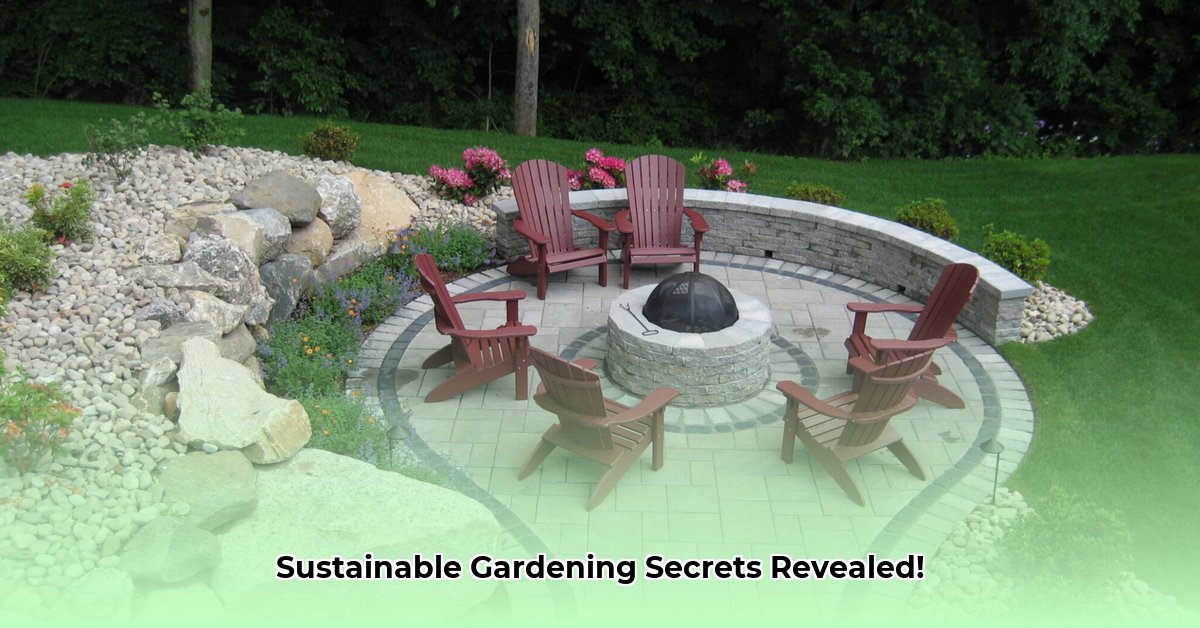
A Hartford Legacy: Fifty Years of Greening the City
Stonehedge Landscaping isn't just a landscaping company; it's a Hartford institution, quietly shaping the city's green spaces for over five decades. Their enduring success stems from a deep commitment to sustainable practices, not as a marketing tactic, but as a core value ingrained in their fifty-year history. This case study explores their approach, highlighting both triumphs and challenges, and offers actionable insights for businesses, consumers, and local governments striving for more sustainable gardening practices. For more sustainable landscaping inspiration, check out this great resource.
Sustainable Practices: A Deep-Rooted Commitment
Stonehedge's dedication to organic gardening isn't a recent trend; it's fundamental to their identity. They prioritize reputable organic brands such as Chickity Doo Doo, Espoma, Fox Farm fertilizers, and Fafard soils, reflecting a philosophy of working with nature. Their choice of organic corn gluten meal as a natural alternative to chemical fertilizers underscores their commitment to healthy soil and minimizing environmental impact. This isn't simply about aesthetics; it's about fostering a thriving ecosystem.
Biodiversity in Bloom: A Haven for Wildlife
Stonehedge's approach extends beyond organically-sourced products to a deliberate focus on biodiversity. Their landscape designs incorporate a diverse array of plant species—from David Austin roses to native American flora—creating habitats for pollinators and beneficial insects. Hummingbird and bird feeders further enhance this commitment, transforming gardens into vibrant ecosystems teeming with life. Isn't it remarkable how a thoughtfully designed garden can contribute to overall environmental health?
Challenges and Opportunities: Balancing Sustainability and Market Demands
While Stonehedge's commitment is laudable, navigating the landscaping market presents inherent challenges. The presence of Scotts products alongside their organic offerings illustrates the complexities of balancing consumer expectations with sustainable ideals. This tension, common among environmentally conscious businesses, highlights the need for increased transparency. Providing detailed information on product sourcing, manufacturing processes, and environmental impact enhances consumer understanding and allows for informed purchasing decisions. This presents a significant opportunity for Stonehedge to further reinforce their sustainable brand image.
Case Study Analysis: Strengths and Areas for Improvement
Stonehedge's strengths lie in their long-standing community engagement and consistent dedication to organic practices and biodiversity. However, inconsistent product sourcing – the use of both organic and conventional products – presents a point of improvement. Greater transparency regarding product choices and a phased transition towards fully organic options could enhance their commitment.
Actionable Recommendations: A Collaborative Approach
To further enhance sustainability within the landscaping industry, a collaborative approach is crucial.
1. Stonehedge Staff: Conduct thorough supplier audits prioritizing sustainability certifications within the next year. Within five years, develop comprehensive educational outreach programs for the community, exploring potential for regional expansion.
2. Consumers: Support targeted marketing highlighting the long-term benefits of organic products. Develop a customer loyalty program incentivizing sustainable product purchases within the next year, and introduce a wider range of eco-friendly options over the next five.
3. Local Government: Actively participate in local sustainability initiatives and advocate for environmentally friendly policies. Collaborate with conservation organizations to establish pollinator gardens and green spaces throughout Hartford within the next five years.
These collaborative efforts can significantly impact sustainable gardening practices in Hartford and beyond.
Conclusion: A Sustainable Legacy for Future Generations
Stonehedge Landscaping serves as a compelling model for sustainable business practices. Their fifty-year history, dedicated approach to organic gardening and biodiversity, and community involvement provide a strong foundation. While challenges remain in balancing market demands with ecological responsibility, their commitment to transparency and continuous improvement positions them as a leader in sustainable landscaping, paving the way for a greener future in Hartford and beyond. Their ongoing journey serves as an inspiration and a roadmap for others seeking to integrate sustainability into their operations.